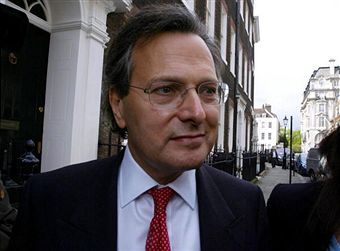 Yesterday, I wrote that Jack Straw’s savagery in response to Goldsmith’s original advice bespoke of personal animosity. That may well be so, but Goldsmith’s testimony reveals that he was long convinced of his initial advice’s validity. Blair was exasperated with his friend’s stubbornness: “your advice is your advice,” he said pointedly. Yet eventually Goldsmith changed his mind. Why? Well plainly the government wanted him to because they thought he was wrong.
Yesterday, I wrote that Jack Straw’s savagery in response to Goldsmith’s original advice bespoke of personal animosity. That may well be so, but Goldsmith’s testimony reveals that he was long convinced of his initial advice’s validity. Blair was exasperated with his friend’s stubbornness: “your advice is your advice,” he said pointedly. Yet eventually Goldsmith changed his mind. Why? Well plainly the government wanted him to because they thought he was wrong.
Chronology is important here. Goldsmith wrote a note to Blair dated 12 January 2003 (three months before the invasion) reiterating his objections. Later in the month and at someone else’s suggestion, Goldsmith met Greenstock, who wanted to put the Attorney General right. He failed because Straw wrote his acidic letter on February 6th. There is no indication that Straw’s barracking had an immediate desired effect because Goldsmith was flown to Washington (again at someone else’s suggestion, probably Greenstock’s) on the 10 February, where he meet Will Taft, Judge Gonzales and Condi Rice and other authors of Resolution 1441. Having been thoroughly educated in international law and specifically in inscrutable UN protocal, Goldsmith relented on 12 February.
Straw’s letter proves that there was a credible case against a second Resolution as a pre-requisite, so legality is not necessarily at issue. What is at issue is Lord Goldsmith’s suitability to offer advice on the more arcane points of international law. Peter Goldsmith was a heavyweight at the Bar, no question. But, his specialism was auditors’ liability, insurance and other commercial disputes. He was not an international lawyer and it shows. Arguments about the Iraq war’s legality will rage down the centuries, and it is wrong of unqualified pundits like me to opine on that question. But Blair’s case will always be marred by his great friend’s very obvious errors and even more obvious u-turn. Blair should have engaged an expert or Goldsmith should have deferred to one.






Comments